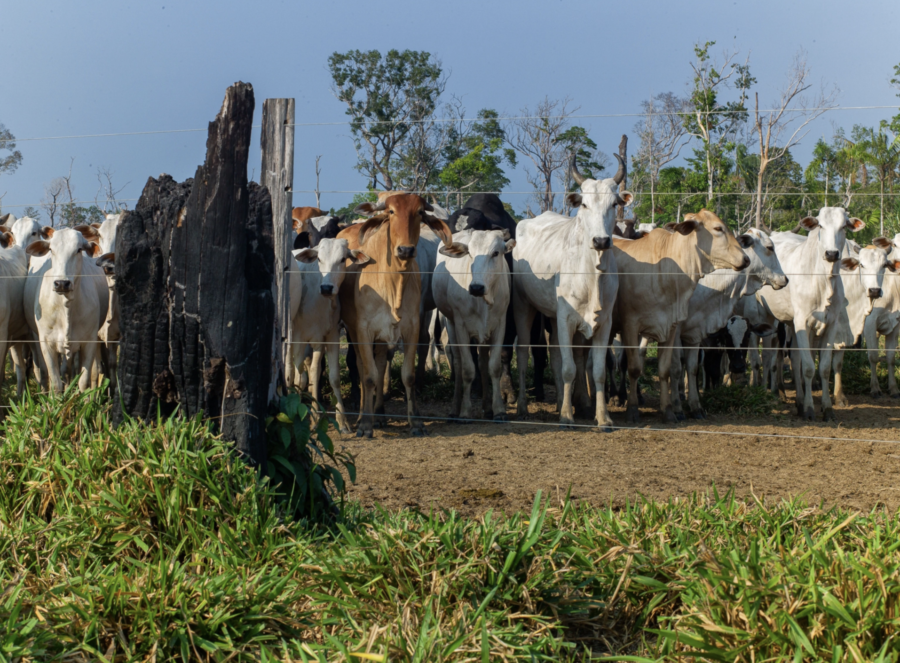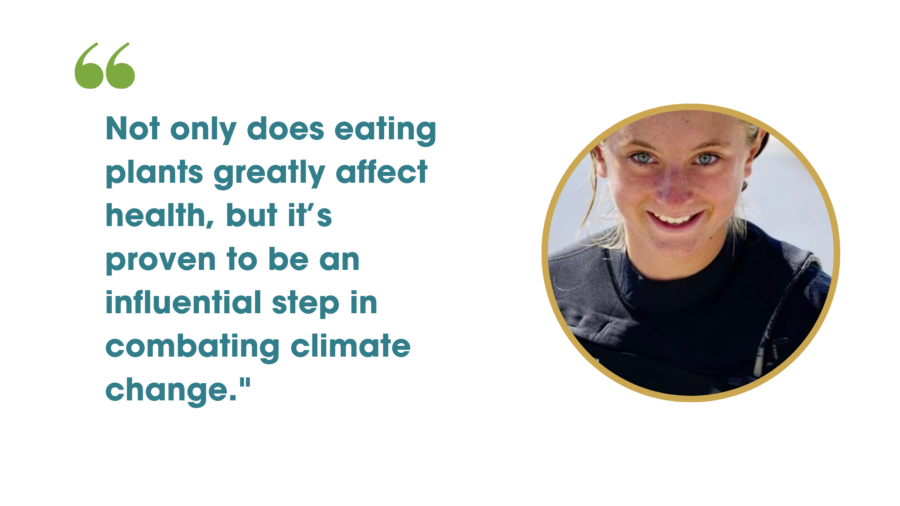#ambassadors
Plant Based Diet: Better For You and For The Planet
By TCI Ambassador Mara Muse
There are many reasons that all of us should eat more plants. Not only does eating plants greatly affect health, but it’s proven to be an influential step in combating climate change. When humans consume a diet rich in animal products, there are more greenhouse gas emissions produced, increased deforestation, and water consumption compared to a plant based diet. Plant based diets are better for the environment and better for us.
Eating a plant based diet greatly reduces the amount of land needed to yield adequate food supply when compared to a non plant based diet. 80% of deforestation in the Amazon Rainforest is caused by cattle ranching, which requires a massive amount of land in order to grow food for the cattle. Food grown for cattle could be used more efficiently by directly feeding people. Looking at these food systems and how they impact our planet can help us better understand what we can do to slow the rise of climate change.

Not only does animal agriculture consume large amounts of food, it consumes large amounts of water as well. Plant based foods are much more water efficient than animal products. In the U.S., Animal agriculture is responsible for nearly half of all water consumption. A pound of beef can take a total of 1800-4000 gallons of water to produce, whereas vegetables take about 40 gallons and legumes 500 gallons. Overall, the water footprint of beef is six times larger than legumes. Animal agriculture also pollutes water, it’s common for animal waste to leak into nearby rivers, streams, lakes, and ponds and can then contaminate groundwater. Fertilizer and pesticides have the same potential effect. Plant farming, especially organic plant farming, is more water efficient because it requires less water to produce a serving of food and it does not contaminate other water sources, this is especially true for organic farming as there are no toxic pesticides.

In addition to deforestation and water use and contamination, animal products leave a larger carbon footprint than plant based products. One gram of animal protein has a 7.5% higher carbon footprint than one gram of plant protein. Animal agriculture is also a huge producer of methane, which is 30 times more powerful than carbon dioxide and is released from cows as a by-product of their digestive systems. A common misconception is that grass fed meat has less of a carbon footprint, this is false because grass fed cows, due to their diet, release more methane when fed grass and in turn have a greater carbon footprint than non grass fed cows.
 We now know that eating a plant based diet has tremendous benefits for the environment, but is it as good for our health? When discussing a plant based diet many people have doubts about whether it fulfills all nutrient requirements. A common misconception is that vegans and vegetarians do not get enough protein as they are not eating meat, however there are many plant sources that have a significant amount of protein such as beans, tofu, nuts and seeds, lentils, nutritional yeast and many more. Other nutrients that are often confused for not being in a plant based diet could include B12 and calcium. B12 can be found in nutritional yeast, and calcium in plant milks such as almond milk. Not only can a plant based diet fulfill all of your nutrient needs, but it can give you more energy. Because plants generally have more nutrients in them per calorie, you are accumulating more important nutrients in your diet than if you were eating animal products which are less nutrient dense.
We now know that eating a plant based diet has tremendous benefits for the environment, but is it as good for our health? When discussing a plant based diet many people have doubts about whether it fulfills all nutrient requirements. A common misconception is that vegans and vegetarians do not get enough protein as they are not eating meat, however there are many plant sources that have a significant amount of protein such as beans, tofu, nuts and seeds, lentils, nutritional yeast and many more. Other nutrients that are often confused for not being in a plant based diet could include B12 and calcium. B12 can be found in nutritional yeast, and calcium in plant milks such as almond milk. Not only can a plant based diet fulfill all of your nutrient needs, but it can give you more energy. Because plants generally have more nutrients in them per calorie, you are accumulating more important nutrients in your diet than if you were eating animal products which are less nutrient dense.

Vegan Tacos by Mara Muse
Ultimately, everybody is different and a vegan or vegetarian diet may not be the best fit for you, but we can all try to incorporate more plants into our diets. Whether that means going completely vegan or swapping out the meat in your tacos for beans, eating more plants is a simple way that we can all help our environment.
